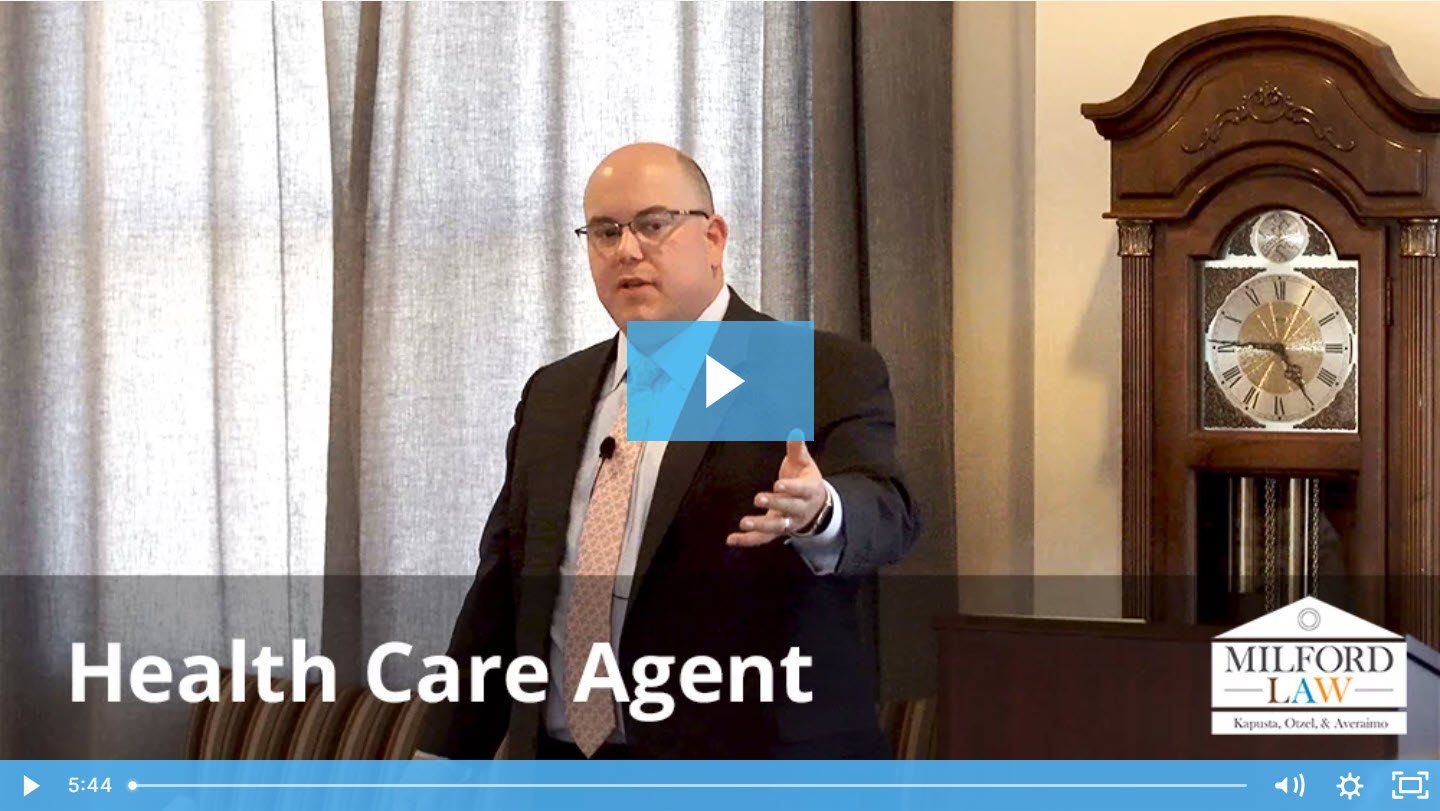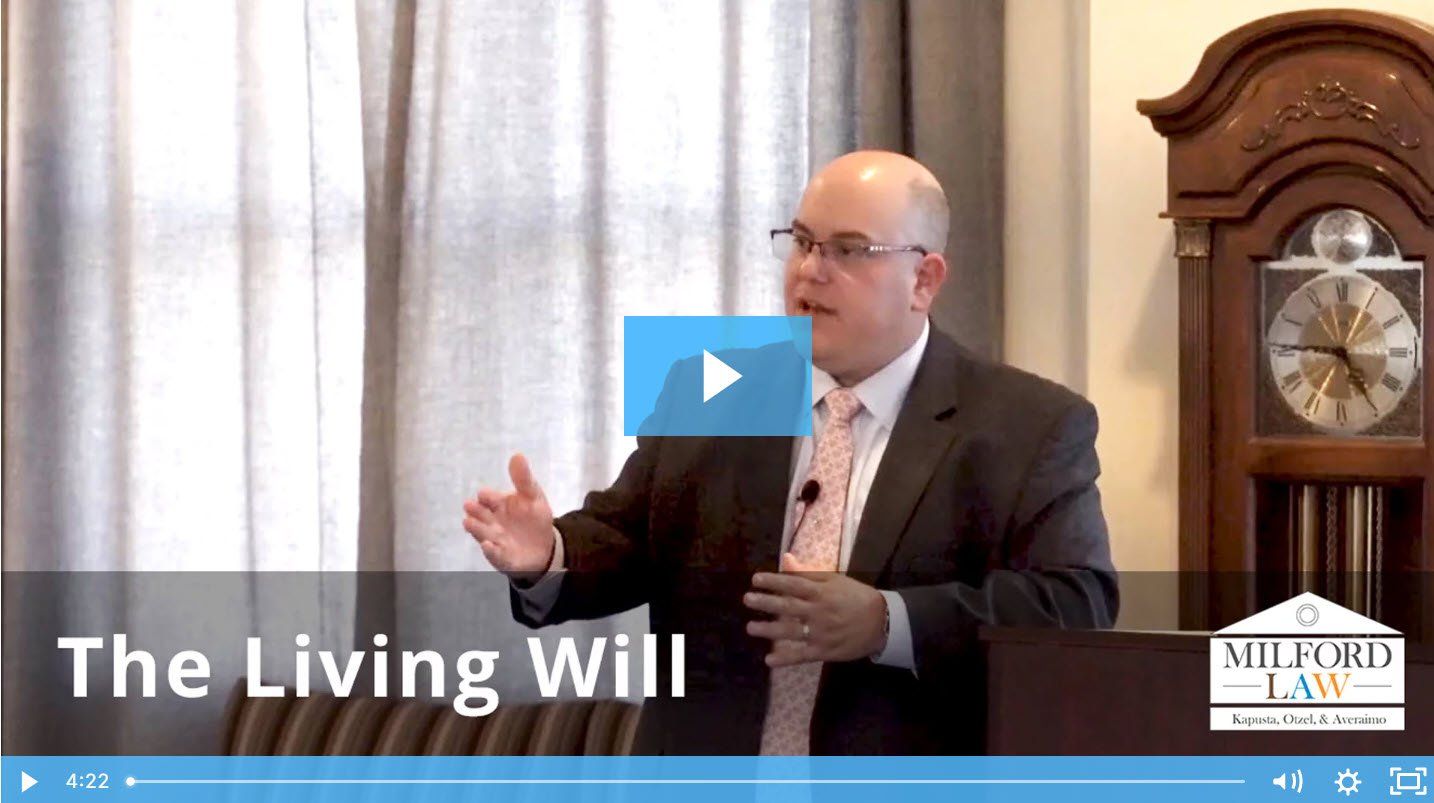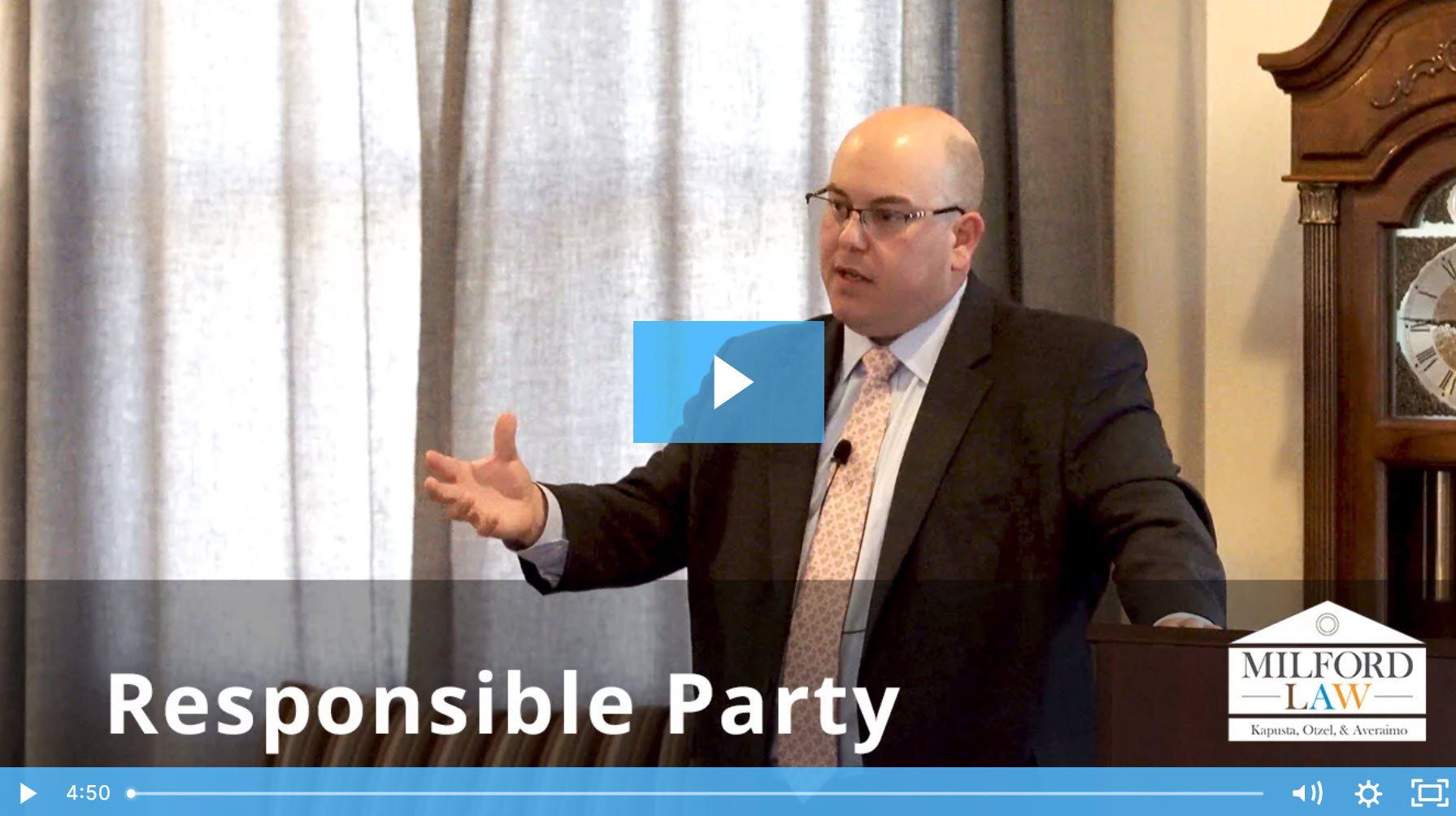What is a Conservator?
Part 3 in our series: Are your Affairs in Order?
When defining what a “conservator” is, the definition always comes with the question, “What's the difference between that and a Power of Attorney and the Health Care Agent”, and there is quite a distinct difference. The difference is that a conservatorship is overseen by a probate court. Why would that happen? This is where I'm going to get into a little legal mumbo jumbo. Basically, a durable power of attorney and the healthcare agent form can essentially do very much the same things as a conservatorship, where one serves as a Conservator of the person and Conservator of the estate. They deal with medical decisions, life decisions, but also financial decisions, decisions on debts, decisions on assets, things of that nature.
The one overriding difference between a conservatorship and the other documents is that the probate court has oversight. Why do they have oversight? In some instances, it might be because there are a number of different, very complicated, financial avenues that need to be taken. For example, a loved one has to be placed into a nursing care facility and there is a Title 19 application pending down the road. What many people don't realize is that when you admit a loved one into a nursing home as a conservator, you're acting as an agent of the probate court and therefore there is some immunity from liability, as opposed to a power of attorney. Any action you take as a power of attorney you could be personally liable for.
For example, in a situation I’ve litigated, in which you had individuals who happen to be conservators who placed a loved one into a 24-hour nursing care facility and applied for Title 19, and some deficiencies arose in the application, and ultimately there were three or four months when the Title 19 did not cover the cost of care; the question arose as to whether or not these conservators were personally liable for that cost.
Very simply, in order to qualify for Title 19, you have to spend your assets all the way down to approximately $1,600, depending upon the circumstance. The average cost of care for a 24-hour nursing care facility is in excess of $15,000 to $16,000 per month. So, between $15,000 and $16,000 per month times four, that is an unbelievable amount of money that someone could be personally liable for. If you're acting as a conservator, and you seek probate court approval because of their oversight to place your loved one in the nursing care facility, you're then acting as an agent of the probate court and you may be considered immune from personal liability in many instances.
Without going into detail, there are eight million ways that someone can be held liable, but this is the one way that you can avoid a substantial amount of liability, by embracing the conservatorship, getting the probate courts approval, having their oversight and making sure that certain things are in place to avoid any potential liability for yourself. At the end of the day, that's what a conservatorship is. It gives you all of that ability. It gives you all of that power, but with less liability.
Milford Law Articles










